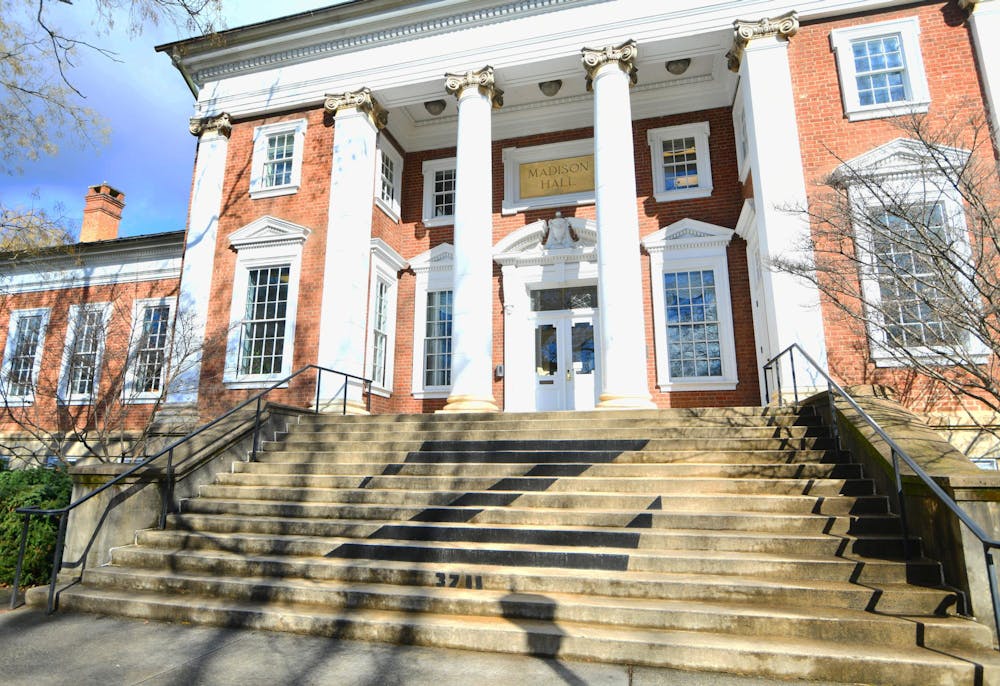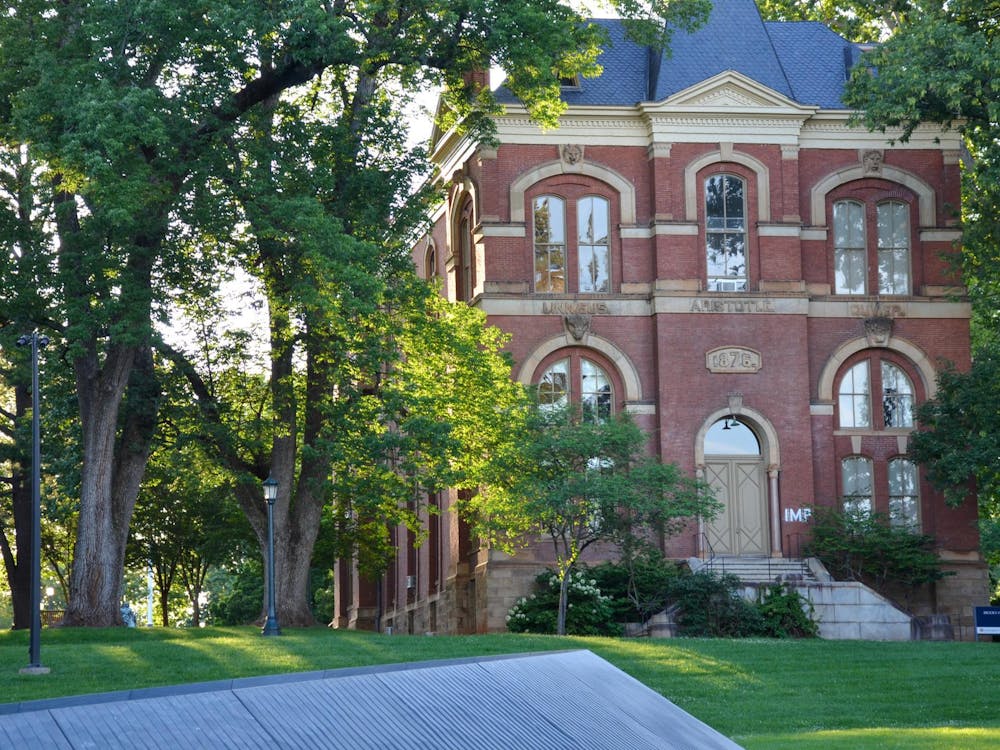University President Jim Ryan joined over 500 higher education leaders in signing a national statement released April 22, which opposed President Donald Trump’s “political interference” in colleges and universities. As of noon EDT on April 30, 568 university leaders had signed onto the statement. While some students saw the move as a meaningful step, others questioned its impact given recent decisions on Grounds.
For many students, recent national and local developments have created a climate of fear on Grounds, particularly among immigrant and marginalized communities. Concerns about Immigration and Customs Enforcement activity, the rollback of Diversity, Equity and Inclusion initiatives and threats to protest rights have led some to question whether the University remains a safe place for all students.
The American Association of Colleges and Universities released the statement, saying that while their universities are open to constructive reform, they oppose “undue” government intrusion into university life. Signees also called for an end to federal funding cuts, which the Trump administration has used against universities which do not adhere to federal executive orders.
“We must oppose undue government intrusion in the lives of those who learn, live and work on our campuses,” the statement reads. “We will always seek effective and fair financial practices, but we must reject the coercive use of public research funding.”
Some students believe that this move by Ryan is a step away from the more conservative direction of the Board of Visitors — where Youngkin-appointed members currently compose 13 out of the Board’s 17 seats.
Fourth-year College student Salimah Hagmagid expressed appreciation for Ryan’s decision to sign the joint statement, which she believes emphasizes the importance of independent leadership within the University administration.
“The fact that President Ryan signed the letter comforted me to know that the president's office still holds its own identity and an opinion that can be independent from the Board of Visitors.” Hagmagid said.
But some students found the letter to lack actions to back it up. Fourth-year College student Samuel Amos found the move by Ryan to be simply performative due to Ryan’s complicity with the dissolution of the University’s Office of DEI and Community Partnerships. The Board voted unanimously to dissolve the Office of DEI at the University March 9 in compliance with Trump’s executive order.
“Personally, it feels performative because Ryan did not make any attempt to fight the Board of Visitors or resist the closing of the DEI department at the University,” Amos said. “I think that he had good intentions and he wants to be a part of the liberal enterprise that is trying to fight back with Harvard. But, I feel like signing the letter, but still dissolving your DEI department is like trying to have your cake and eat it too.”
Harvard University received a list of demands from the Trump administration related to the university’s international student population. Harvard refused, resulting in the administration withholding more than $2 billion in federal grants and led to Harvard suing the administration to block its actions.
Brianna Sharpe, president of the University Democrats and third-year College student, echoed a similar sentiment to Amos, saying that actions speak louder than words, but still feels that this letter is a step in the right direction.
“I am ultimately happy he signed on,” Sharpe said. “I do just have a little concern that, will his actions, our administration's actions, match the words of this letter? He can sign on to this letter, but there's still concerns about students being protected and I just hope he follows up on that promise.”
Students recognized that Ryan’s choice to sign onto the letter does not come without the risk of facing the same repercussions as Harvard. Hagmagid acknowledged the potential risks of Ryan’s decision — namely having its federal funding withheld — but said that signing the letter despite such risks signaled a bold stance by the University against passive acceptance of federal directives.
“This felt like a very risky decision, but it felt like a necessary one,” Hagmagid said. “It felt like it put U.Va. in the conversation of universities that are thinking critically about this and are not just accepting these orders as simply just the new status quo.”
Third-year College student Jorge Solorzano agreed, expressing concerns about the issues that could arise from signing onto this letter. While he praised Ryan for his leadership of the University, Solorzano said that Ryan should consider how his viewpoint reflects the University community as a whole.
The statement from AAC&U directly mentions the partnership between universities and the government, one that could be complicated by the Trump administration and Ryan’s actions.
“Because of these freedoms, American institutions of higher learning are essential to American prosperity and serve as productive partners with the government in promoting the common good,” the statement reads.
Moving forward, some students say they want to see stronger action from University leadership in response to nationwide ICE activity with a focus on protecting free speech and the right to protest on campus. The letter signed by Ryan does urge institutions to stand firm in protecting open inquiry, institutional autonomy and the rights of students and faculty to express diverse views without fear of censorship or retaliation.
Hagmagid still urged the University to speak out and act more strongly in support of international and noncitizen students and called for firm backing of faculty facing pressure from recent attacks on DEI.
“I would really like to see a stronger response to the ICE arrests that have been going on campuses all around the country,” Hagmagid said. “I think that this is a huge threat to free speech ... and that universities should be the safest place to be able to exercise your First Amendment rights.”
Amos agreed, expressing frustration with what they viewed as a symbolic gesture and emphasized the urgent role university leadership must play in protecting democratic values.
“University leadership is the last line of defense that we have for liberal democracy,” Amos said. “Whenever we have universities that aren't afraid to capitulate to fascist actions, then somebody signing a letter is more of an insult to me as a student.”
Sharpe also noted that recent national developments, including efforts to dismantle DEI initiatives and revoke student visas, make it even more critical for University leaders to make changes which will protect students.
“What we're seeing right now is completely unprecedented. Attacks on DEI, the Department of Education, student visas being revoked, is just not okay,” Sharpe said. “It's come to the point where it's not even political anymore. It's just [about] protecting your students. So, I think it's definitely important for leaders of schools and administrations to step up or speak up.”







